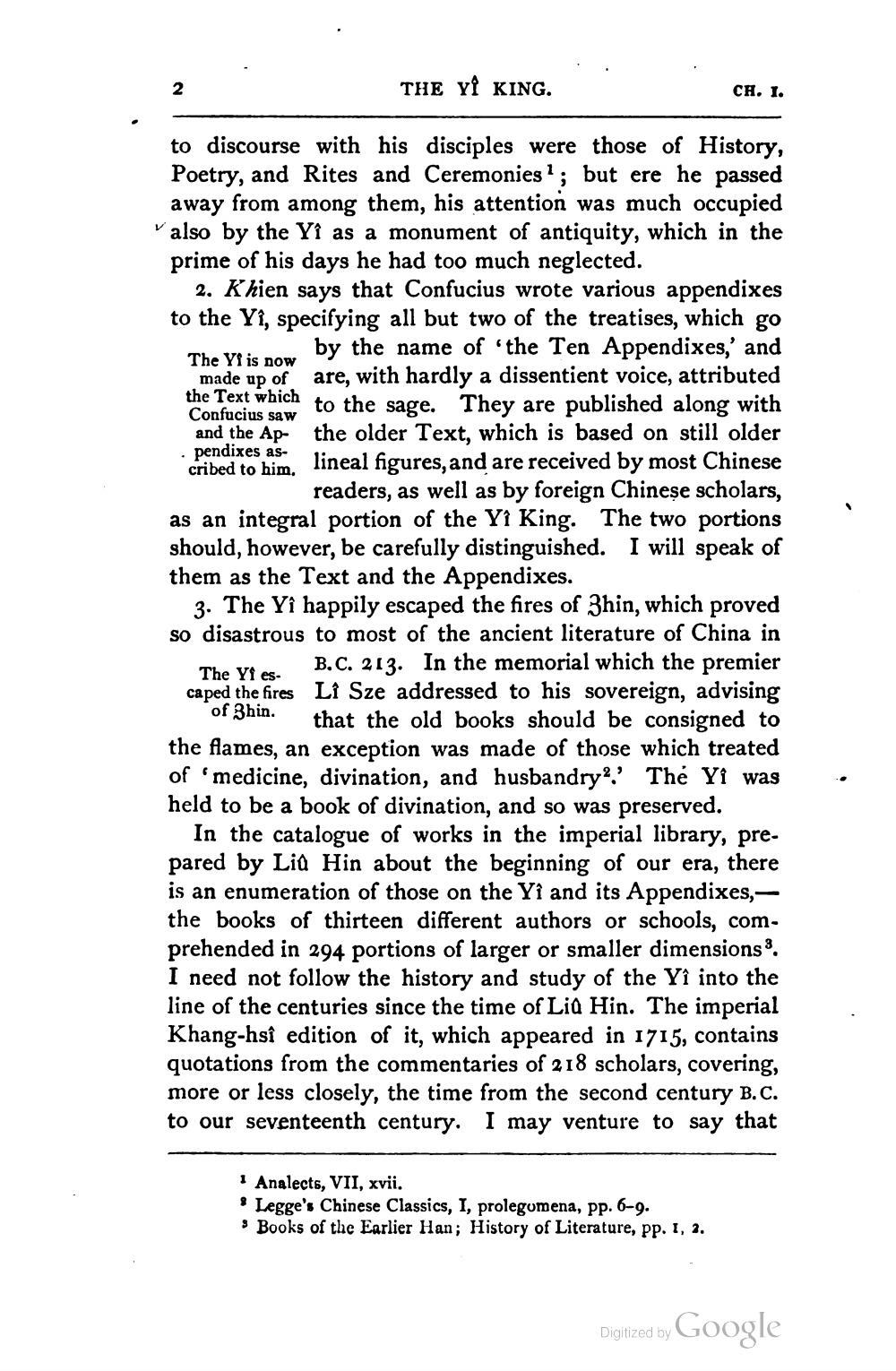________________
THE YÎ KING.
CH. 1.
to discourse with his disciples were those of History, Poetry, and Rites and Ceremonies ?; but ere he passed away from among them, his attention was much occupied also by the Yỉ as a monument of antiquity, which in the prime of his days he had too much neglected.
2. K’hien says that Confucius wrote various appendixes to the Yi, specifying all but two of the treatises, which go The Yi is now
by the name of the Ten Appendixes,' and made up of are, with hardly a dissentient voice, attributed the Text which to the sage. They are published along with Confucius saw and the Ap- the older Text, which is based on still older pendixes ascribed to him. lineal figures, and are received by most Chinese
readers, as well as by foreign Chinese scholars, as an integral portion of the Yi King. The two portions should, however, be carefully distinguished. I will speak of them as the Text and the Appendixes.
3. The Yî happily escaped the fires of Zhin, which proved so disastrous to most of the ancient literature of China in
B.C. 213. In the memorial which the premier The Yi escaped the fires Li Sze addressed to his sovereign, advising
of Zhin. that the old books should be consigned to the flames, an exception was made of those which treated of 'medicine, divination, and husbandry?' The Yi was held to be a book of divination, and so was preserved.
In the catalogue of works in the imperial library, prepared by Lið Hin about the beginning of our era, there is an enumeration of those on the Yî and its Appendixes,the books of thirteen different authors or schools, comprehended in 294 portions of larger or smaller dimensions. I need not follow the history and study of the Yî into the line of the centuries since the time of Lid Hin. The imperial Khang-hsî edition of it, which appeared in 1715, contains quotations from the commentaries of 218 scholars, covering, more or less closely, the time from the second century B.C. to our seventeenth century. I may venture to say that
Analects, VII, xvii. • Legge's Chinese Classics, I, prolegomena, pp. 6-9.
Books of the Earlier Han; History of Literature, pp. 1, 2.
Digitized by Google




